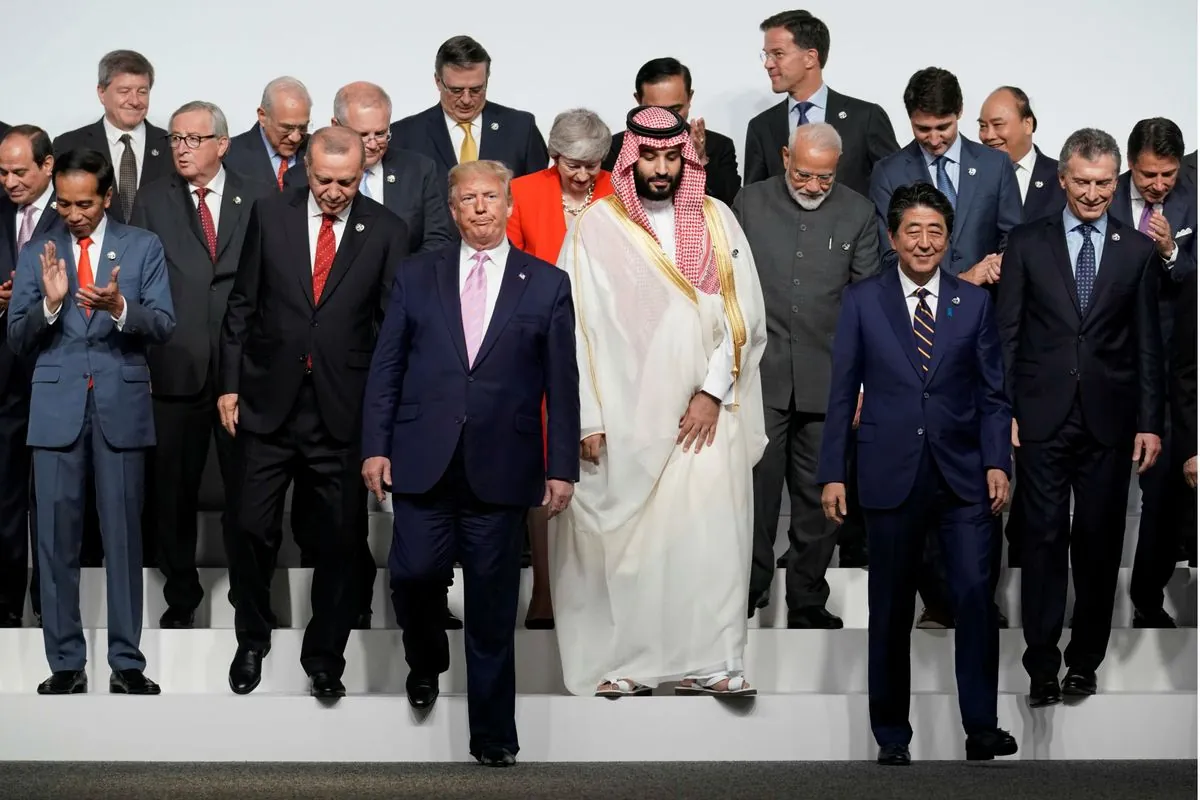In July 2023, John McLaughlin, former acting CIA director, highlighted the threat posed by China, Iran, North Korea, and Russia at the Aspen Security Forum. This perspective echoes concerns raised by various analysts who view these nations as a new "axis of evil," reminiscent of George W. Bush's 2002 rhetoric.
However, this characterization oversimplifies complex geopolitical dynamics. While cooperation among these nations has increased, particularly since Russia's 2022 invasion of Ukraine, their relationships are best described as pragmatic, bilateral arrangements driven by self-interest and shared opposition to U.S. policies.
Russia, facing Western sanctions, has strengthened ties with China, North Korea, and Iran. In 2023, China became Russia's primary crude oil supplier, with bilateral trade reaching a record $240 billion. China has also provided dual-use technologies supporting Russia's defense industry.
Reports from June 2024 suggest North Korea may have supplied Russia with up to 1.6 million munitions since the Ukraine conflict began. Similarly, Iran reportedly provided Russia with approximately 400 ballistic missiles, including Fateh-110 variants.
"Our partnership agreement commits us to mutual defense in case of attack, strengthening our strategic cooperation."
Despite these growing ties, each relationship remains transactional and likely temporary. Russia's partnerships are primarily motivated by its immediate military needs in Ukraine. China's support for Russia serves its own interests in challenging U.S. dominance, but has clear limits, as evidenced by the stalled Power of Siberia 2 pipeline project.
Cooperation beyond Russia-centric relationships is more limited. China and Iran's ties focus mainly on economic exchange, with China purchasing 85-90% of Iran's daily oil exports. China's relationship with North Korea remains cautious, reflecting concerns about potential regional instability.
U.S. policymakers should avoid treating these four powers as a unified bloc. Instead, they should pursue differentiated strategies addressing unique challenges posed by each country. Focus should be on exchanges of advanced military systems and technologies that could significantly alter the balance of power.
Rather than relying heavily on broad sanctions, the U.S. could explore positive inducements. For instance, Iran and North Korea might limit military transfers to Russia in exchange for eased economic restrictions. China could be incentivized to curtail technology sharing with Russia or North Korea through increased inclusion in global governance structures.
By avoiding the oversimplification of an "axis of evil" narrative, the U.S. can better maintain a favorable global balance of power, minimize unnecessary conflicts, and preserve opportunities for improved relations as geopolitical landscapes evolve.
